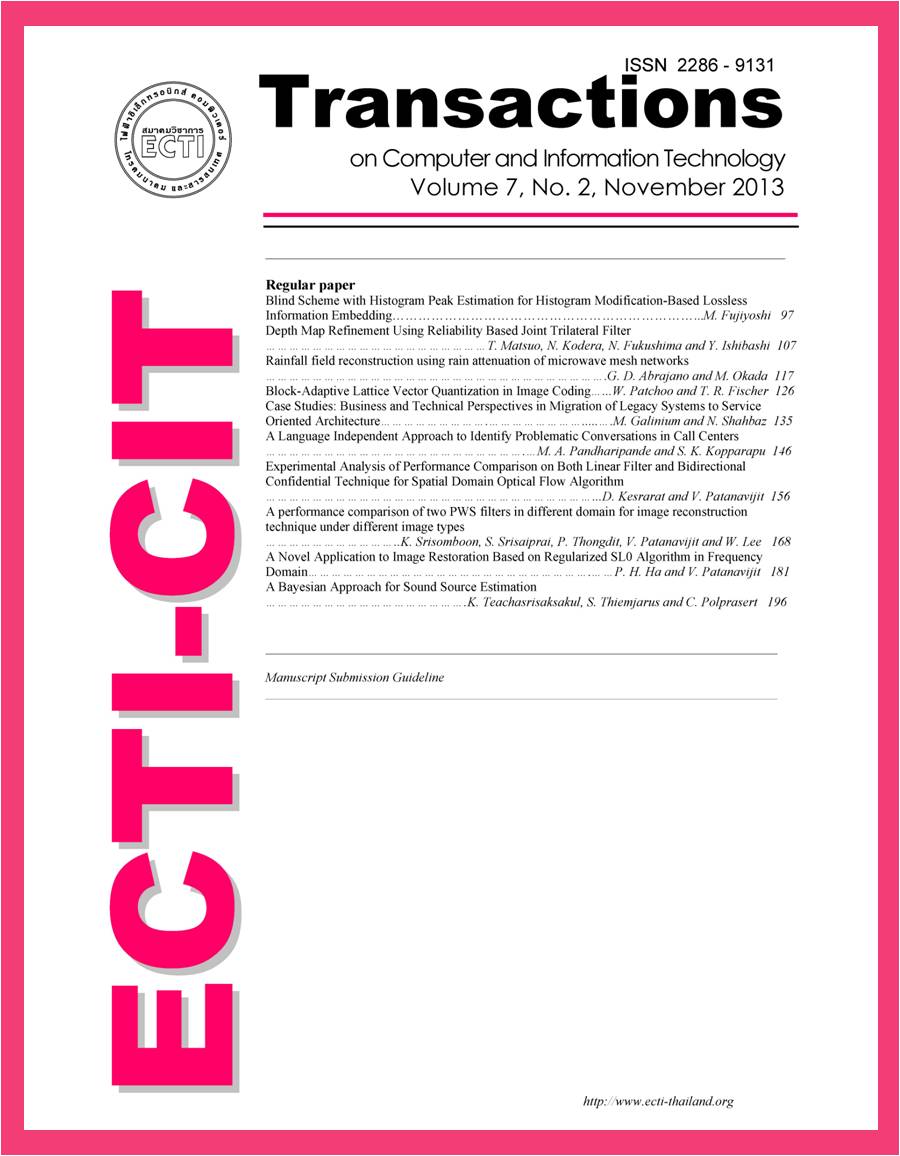A Bayesian Approach for Sound Source Estimation
Main Article Content
Abstract
The goal of this study is to equip a mobile service robot with an ability to navigate to the human who commands the robot by speech. Based on time delay of arrival (TDOA) features, a Bayesian approach to sound source direction estimation is proposed. The method requires low computational complexity and is feasible for real-time robot navigation. Based on an experiment with various parameter settings in an indoor environment, different factors that affect the classification accuracy have been analyzed. The experiment results have illustrated that the proposed Bayesian method outperforms both that of the Microsoft Kinect sensor and the trigonometric approach in terms of classification accuracy.
Article Details
How to Cite
[1]
K. Teachasrisaksakul, S. Thiemjarus, and C. Polprasert, “A Bayesian Approach for Sound Source Estimation”, ECTI-CIT Transactions, vol. 7, no. 2, pp. 196–204, Apr. 2016.
Section
Artificial Intelligence and Machine Learning (AI)

